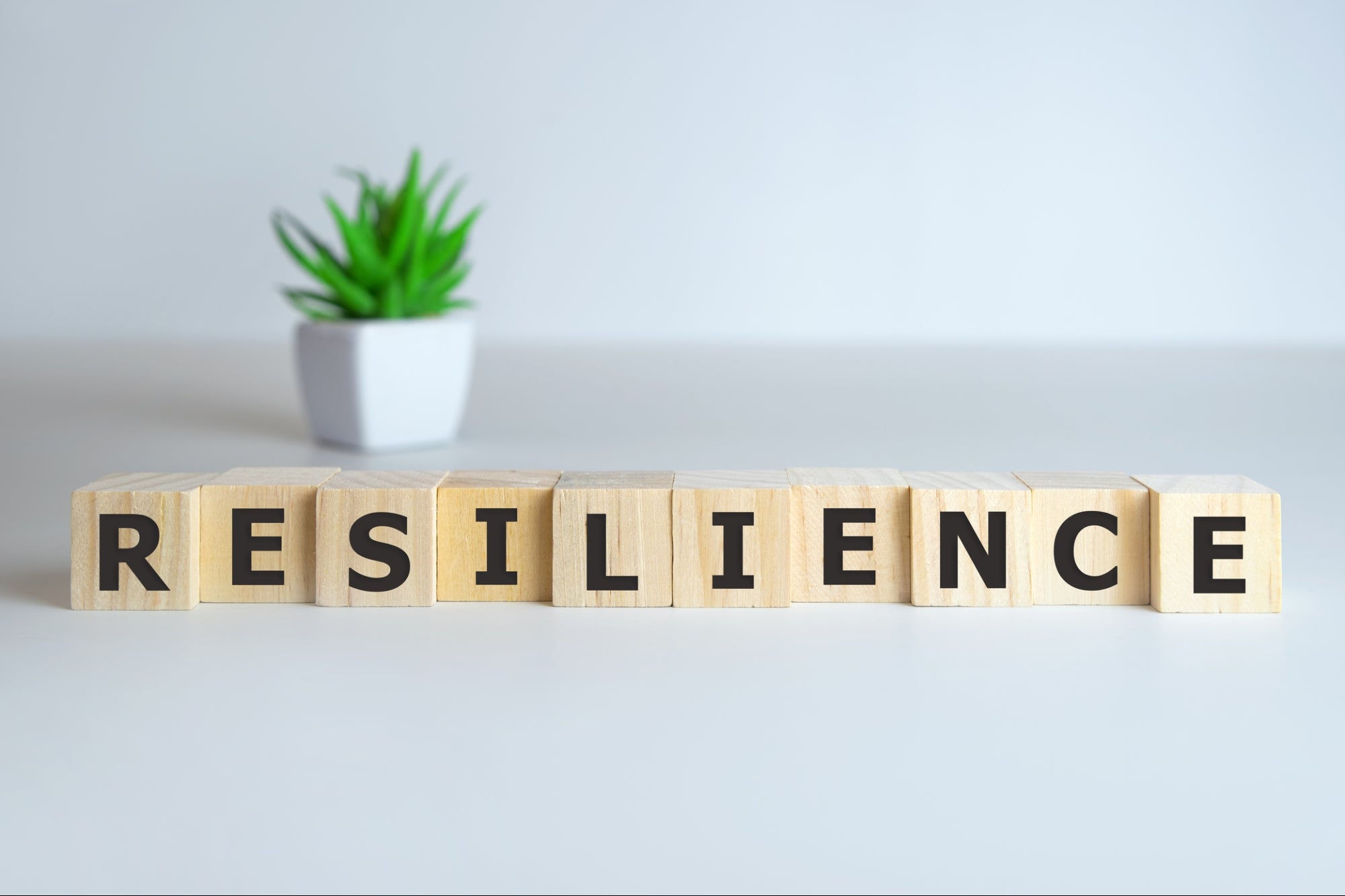Resilience Is One of the Most Essential Entrepreneurial Traits. Practicing This Can Help You Build It. Gratitude is all about recognizing that good things can come from bad times.
Opinions expressed by Entrepreneur contributors are their own.

Resilience is the capacity to bounce back from difficult events, and if there's one group who needs that ability, it's entrepreneurs. Without resilience, every lost client feels like a catastrophe. Failure seems like a point of no return, despite being a normal, if unpleasant, outcome of starting a business.
Resilience, however, is not all or none. Some entrepreneurs are better at picking themselves up and pivoting than others. What separates people who thrive in stressful times from those who break down when faced with adversity?
Research by Vassar College Department of Psychology's Michele M. Tugade from 2004 suggests that resilient people experience positive emotions more frequently. Although positive emotions come in many colors, only one can be conjured in any context: gratitude.
As an entrepreneur, gratitude belongs in your back pocket. Here are four ways gratitude builds resilience so that you can bounce back quicker than ever:
1. Gratitude builds enduring personal resources
When we express gratitude, our thought-action repertoires broaden. This means we are able to take in, consider and act in flexible ways that accommodate the bigger picture.
Over time, the effects of gratitude accumulate and compound. The result is that we can see an ever-increasing number of ways to solve problems and bounce back from others. And by solving problems more effectively in the first place, we need to tap into our personal reserves less frequently.
Remember, this occurs over time. That's why it's so important to establish a daily gratitude practice. The more frequently we feel grateful, the higher our baseline of wellbeing and the less frequently it's broken. Through gratitude, we're better able to brush off emotionally rich, negative situations.
Related: Why Attitude Is More Important Than Intelligence
2. Gratitude helps you form and maintain social relationships
Gratitude is at the core of our social relationships. Sharing and experiencing gratitude is what builds and strengthens our relationships with others. This is because gratitude is motivated by reciprocal altruism: When we give something of value to others, we are trusting them to repay our favor at some future time.
When we express gratitude, we reflect kindness back to the person who ignited feelings of gratitude in us. This act of appreciation increases the chance that both parties will behave altruistically in the future. Gratitude and altruism are cyclical and self-reinforcing.
Interaction by interaction, person by person, gratitude builds a resilient community that will support you when you're at your worst. The key is continuing to invest in those relationships, rather than assuming they'll always be there when you need them.
Related: Why Building a Community Is More Important Than Networking
3. Gratitude rewires your brain
Practicing gratitude rewires the brain to shift your focus away from negative events and toward positive ones. Being grateful activates your hypothalamus, the area of the brain associated with energy maintenance and stress control
Practicing gratitude also makes your mind more sensitive to the effects of dopamine and serotonin. These feel-good neurotransmitters reduce your susceptibility to anxiety and help you muster the motivation to push through tough times.
The bottom line is that gratitude physically changes the brain to better handle adversity. By priming your brain to handle stress, it reduces the amount of time you need to recover from setbacks.
4. Gratitude reminds you that we'll get through this, too
It can be difficult to be grateful for negative experiences, but by shifting your focus to the positive outcomes of these experiences, you take power away from the bad and put it in the hands of the good.
Gratitude is all about recognizing that good things can come from bad times. Doing so helps you see that you're able to weather any storm that comes your way.
This may be why gratitude has been shown to build self-esteem in athletes. In both sports and business, gratitude gives us the self-confidence to get back up on the horse when we fall off. Getting up again and again makes getting knocked down seem less scary.
Related: Why Entrepreneurs Should Always Express Gratitude
Practicing gratitude feels good, to be sure. But gratitude's tie to resilience runs so much deeper than its ability to generate good feelings.
By practicing gratitude, we build up our personal reserves. We build a supportive community around ourselves. We remind ourselves time and time again just how strong we are.
As an entrepreneur, you can't afford to get lost in uncertain and difficult times. So, open up a gratitude journal, reach out to someone who's helped you in the past and reflect on all the good things in your life.









